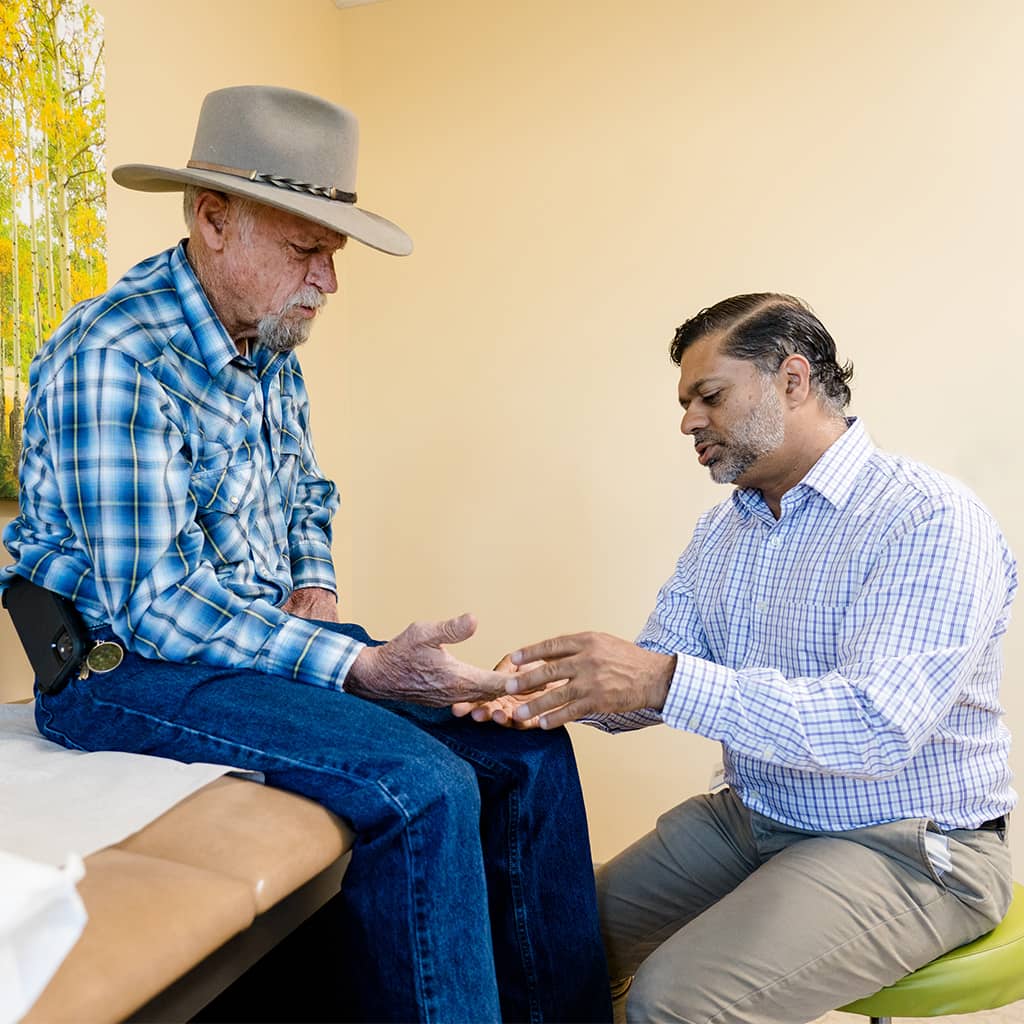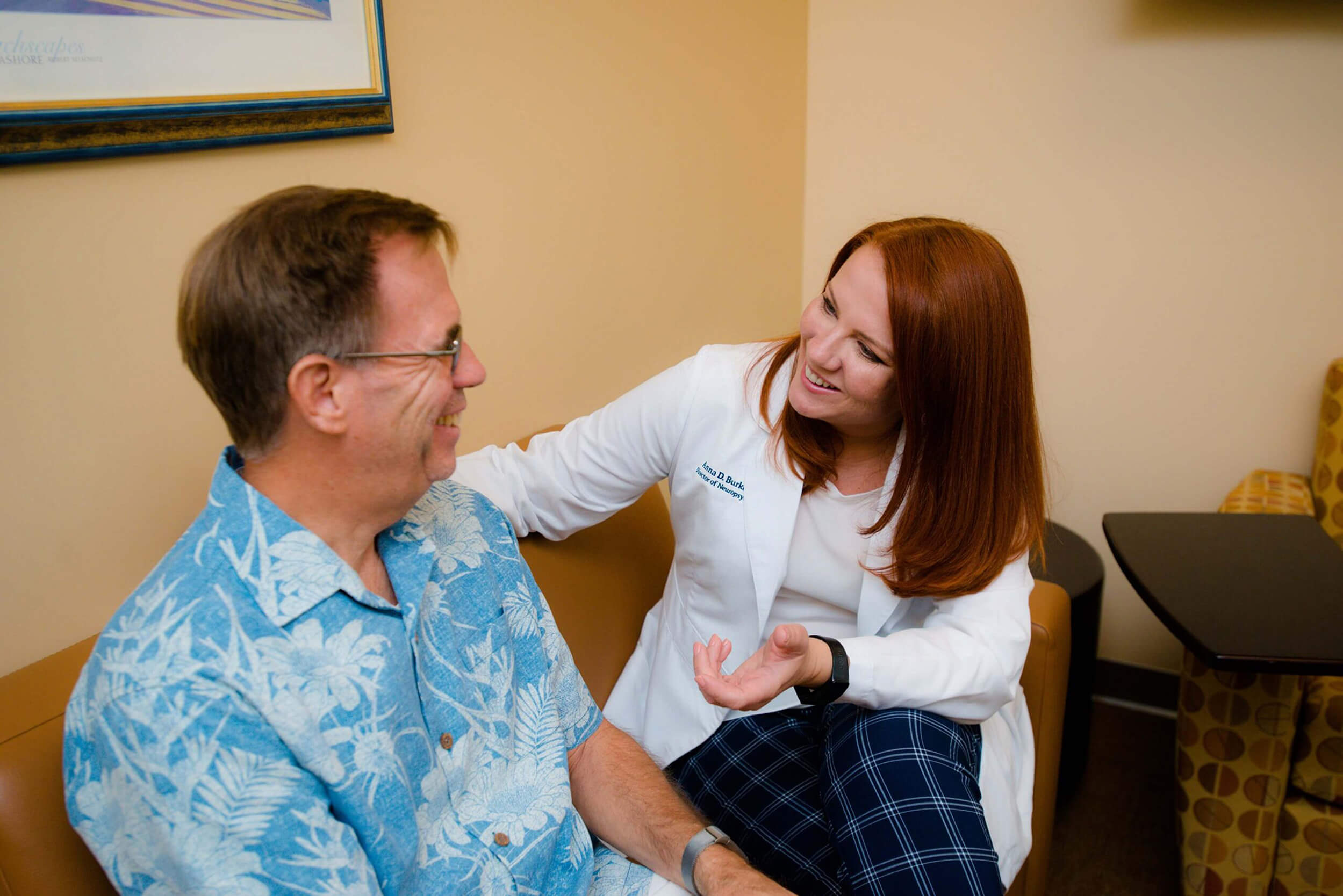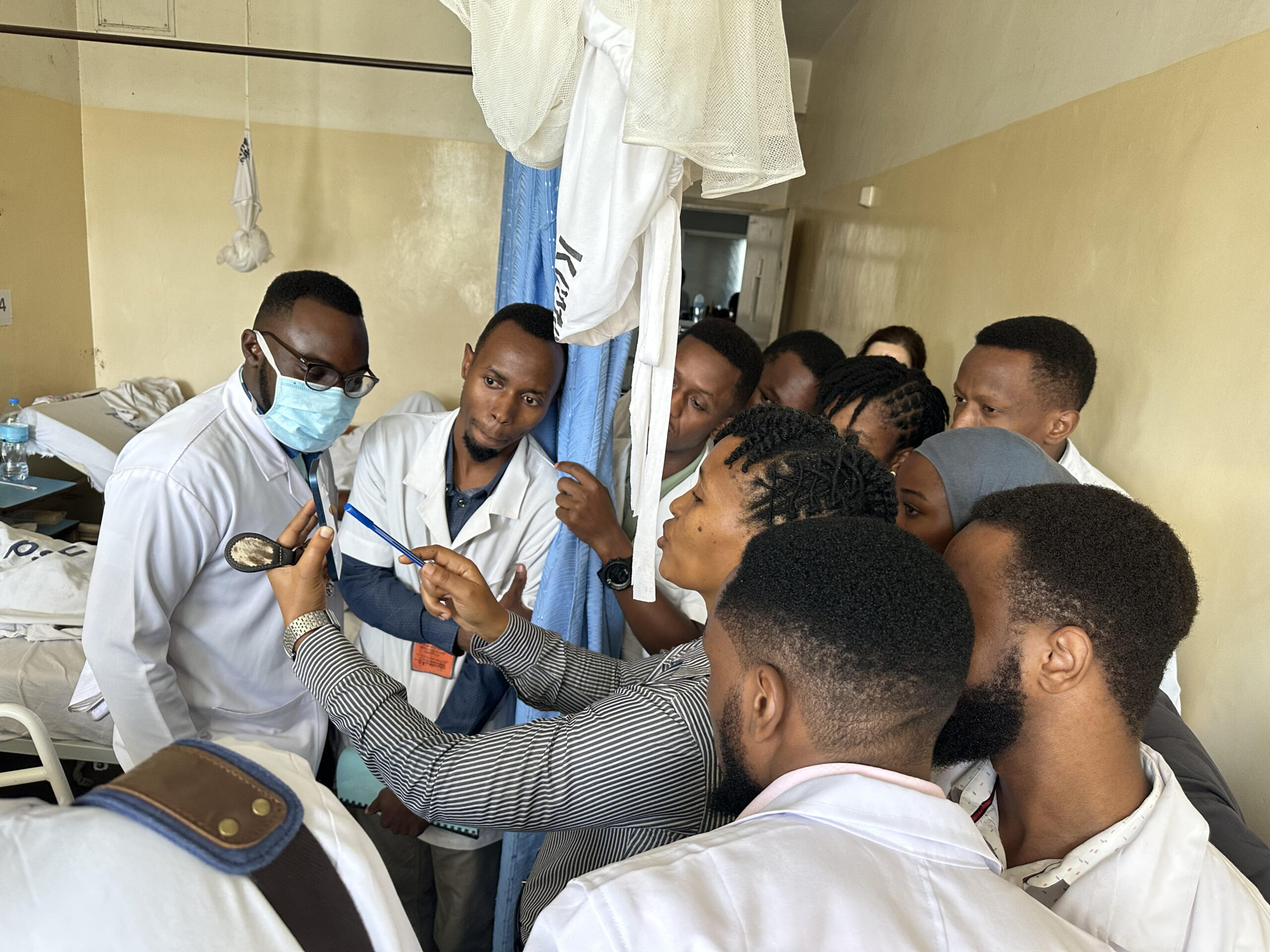Brain Injury & Sports Neurology Center
Your support improves the lives of patients suffering from concussions and brain injuries.
Donate to Brain Injury Care, Research, and Outreach
The Brain Injury & Sports Neurology Center at Barrow Neurological Institute is dedicated to providing comprehensive diagnosis, treatment, and prevention strategies for concussion and traumatic brain injury (TBI). The Center’s Domestic Violence Brain Injury Program is the first of its kind in the nation to address TBI in survivors of domestic violence. It is also a national leader in concussion education and outreach for youth athletes and offers a Sports Neurology & Traumatic Brain Injury Fellowship.
You Help Increase Access to Care for Underserved Populations
Close to 90% of survivors of domestic violence have suffered head, face, and neck injuries, often repeatedly over a long period. This type of injury can lead to significant physical and emotional impairments, which makes it difficult to hold a job, secure housing, and live independently.
Thanks to the generosity of Barrow Neurological Foundation donors, the Domestic Violence Brain Injury Program can provide survivors of domestic violence with comprehensive, compassionate brain injury care regardless of their ability to pay. The program partners with local shelters to offer initial TBI screenings.
Native American Neuroscience Health Equity Initiative
Neurologist Yvette Brown-Shirley, MD, is the director of the Barrow Native American Health Equity Initiative, which aims to provide culturally sensitive neurological care to Native American tribal communities throughout Arizona. In 2024, Dr. Brown-Shirley received a grant from the American Academy of Neurology for her project implementing baseline concussion protocol and culturally appropriate concussion education at a Navajo Nation high school. She is also working to bring other areas of neurological care to Native American tribal communities.
Traumatic Brain Injury Clinic
Barrow has established a monthly TBI clinic at St. Vincent de Paul in downtown Phoenix, which primarily serves uninsured patients, including the homeless population and survivors of domestic violence. This will help to fill a major gap in care for underserved populations with brain injuries.
Your Support, Their Stories
Grateful Barrow patients share how the concussion team helped them return to living a fulfilling life

This program will save someone’s life like mine. I am saved.
[Name Title]
Nearly every day for six years, Sarah had experienced horrific violence from her partner-turned-abuser, including being hit in the head over 120 times.

Your Donations Contribute to Life-Changing Concussion Education
Barrow Brainbook
Second Opinion Telemedicine Platform
Continuing Concussion Education
Sports Neurology & Traumatic Brain Injury Fellowship
Discover More Programs
At Barrow Neurological Foundation, your donation is crucial in supporting three key areas: advanced patient care, curative research, and education for the next generation of neuroscientists. Learn more about how your donation impacts each of the areas we treat.
Support groundbreaking research and clinical trials to give ALS patients a better quality of life.
Help Barrow achieve its mission of transforming Alzheimer’s from a devastating diagnosis to a manageable, chronic condition.
Support Barrow scientists in developing lifesaving treatments for aneurysm and AVM patients.
Help us improve access to neurological care in the developing world through world-class education and training.
Support the Ivy Brain Tumor Center’s mission to find a cure for brain cancer.





